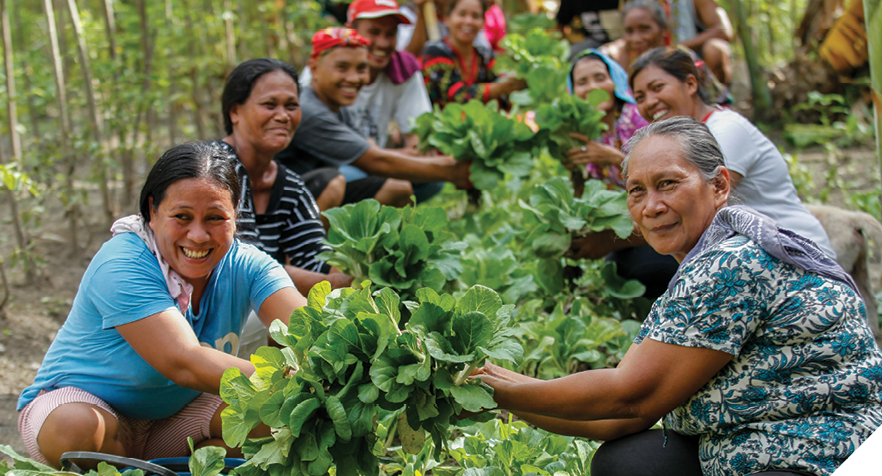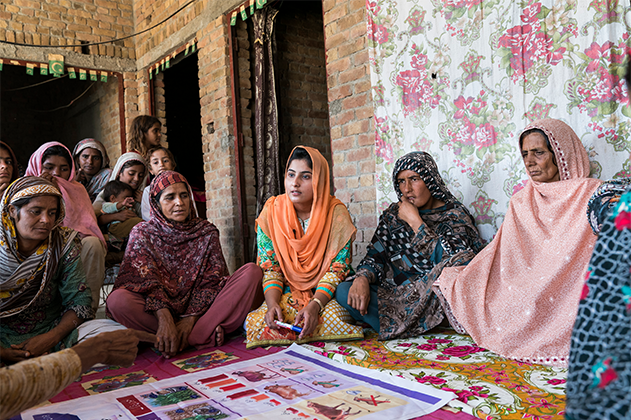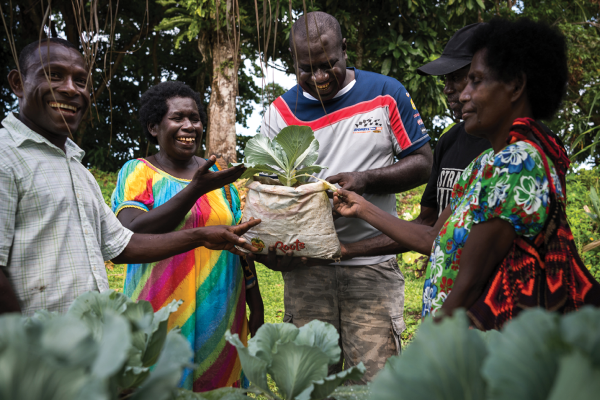In Australia, the empowerment of neighbourhood groups through landcare was a grassroots revolution in environmental management and agricultural extension. Since the late 1980s, landcare has evolved into a strong framework to support community groups to improve the sustainability of Australian landscapes and food production systems. Landcare initiatives are based primarily on trust. The landcare approach brings together communities of farmers to collectively act to bring improvement to their environment and their farming endeavours. This relies on farmer participation, capacity building, self-help and social capital to succeed, and gives rise to social benefits as well as improving the condition of the land.
Extension methods based on the landcare model exist worldwide, including methods that have arisen from ACIAR projects.
The ACIAR Mindanao Agricultural Extension Project is one such project, with farmers becoming a key stakeholder group rather than passive ‘end users’ of project outputs. The project was focused on conflict-vulnerable areas in the southern Philippines and was designed with sensitivity to help build cooperation and trust in the region.
Based on more than 20 years of research, the project started in 2013 and ran for almost eight years in the provinces of Zamboanga Sibugay, Maguindanao and South Cotabato. Australian and Philippine researchers developed an enhanced landcare model with a strong emphasis on livelihoods. The LIFE approach – Livelihood Improvement through Facilitated Extension – develops farmer groups and appoints trusted and well-connected members of the local community to become their facilitators.
The facilitators and farmer groups then work together to identify and launch initiatives that can improve and diversify their income, moving away from the standard local practices of monocropping and environmentally destructive practices such as charcoal production. Support is also drawn from local governments, non-profit organisations, university researchers and others to help the farmer groups when needed.
Dr Mary Johnson, Mr Noel Vock and Dr Ken Menz, all research fellows at RMIT University, were co-leaders of the project.
‘Key to LIFE is farmer-centred decision-making, where they frame the issues and test innovations, and are supported along the way. Formerly, extension processes have come from a position of “Here’s a problem; here’s a solution; this is what you do” but this is not the approach we took. We focused on working with farmer groups and communities – people as the solution, not the problem,’ said Dr Johnson.
LIFE was a huge success. Participating farmers’ incomes increased by up to 80%, while trust and cooperation greatly improved between previously disparate Christian, Muslim and Indigenous communities. The LIFE approach was adopted by the Philippine Council for Agriculture, Aquatic and Natural Resources Research and Development of the Department of Science and Technology (DOST-PCAARRD) in 2016, and the agency continues to develop and apply the approach in conflict-vulnerable areas. In 2022, DFAT launched a separate pilot LIFE study, building on the ACIAR research to broaden its reach.
The distinctive Australian expertise of landcare has informed several ACIAR projects over the last 30 years, and many other projects have emerged across more than 20 countries. In 2022, ACIAR partnered with Global Landcare to publish a book, Building global sustainability through local self-reliance: Lessons from landcare, in which researchers and practitioners from 11 countries share their expertise and experience of landcare around the world.




